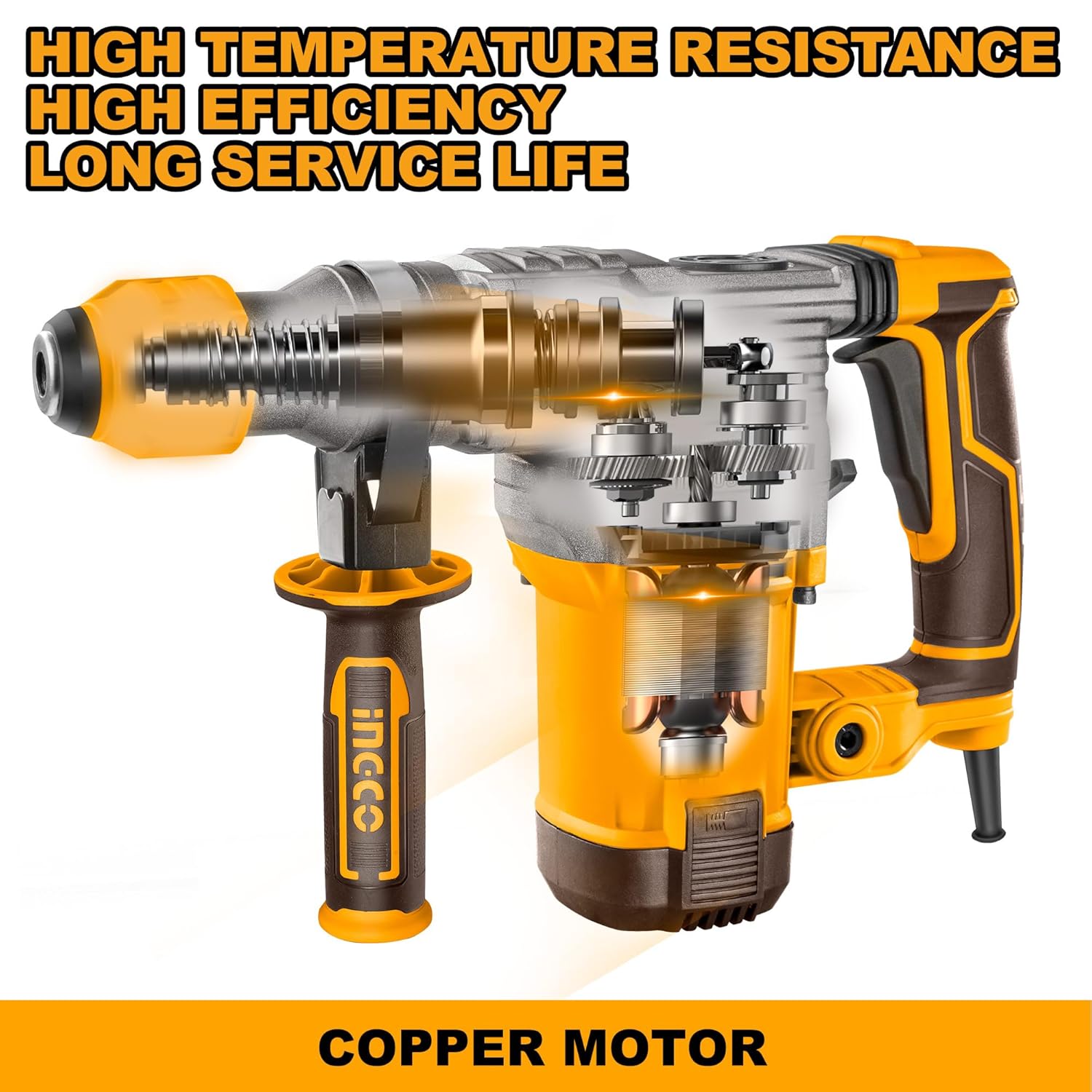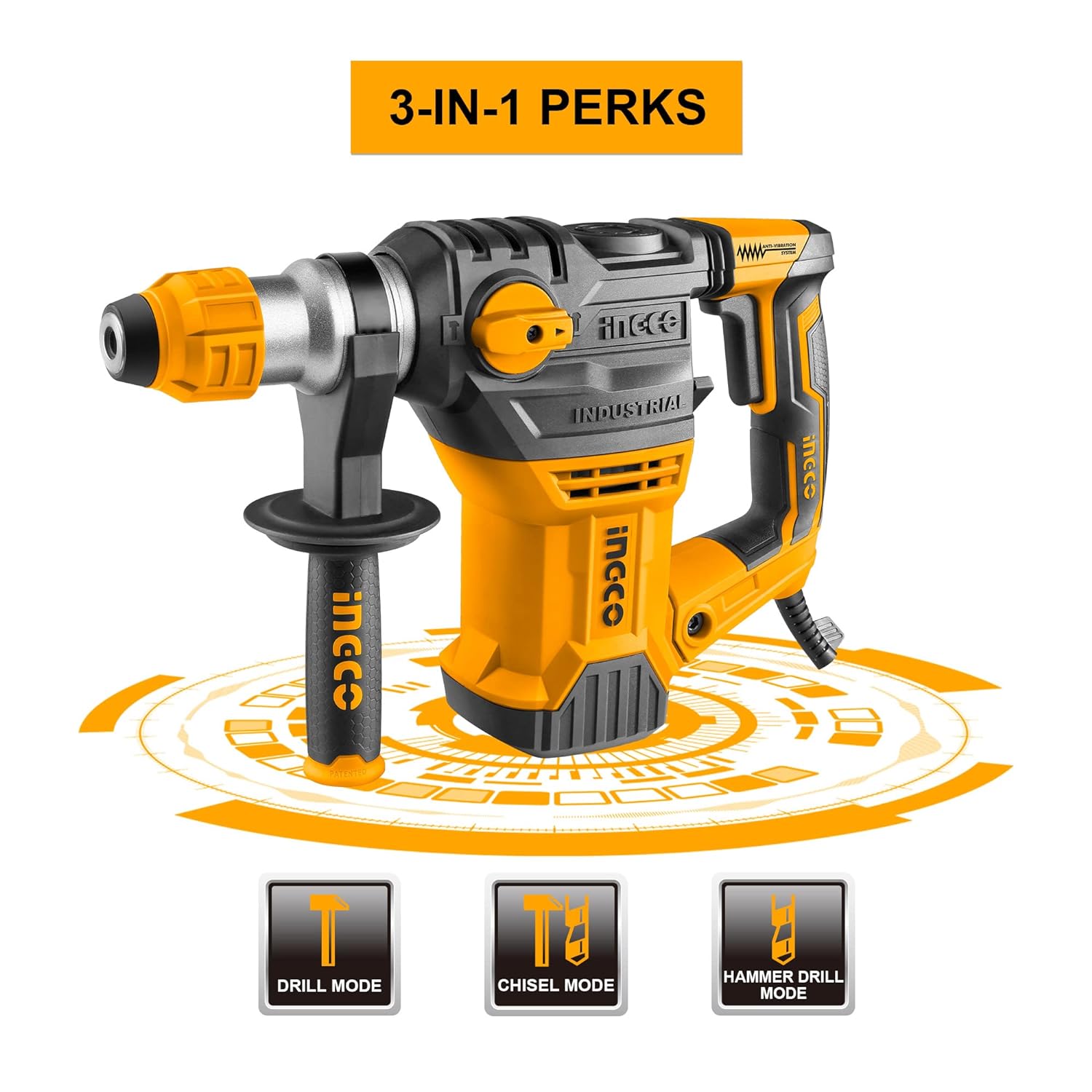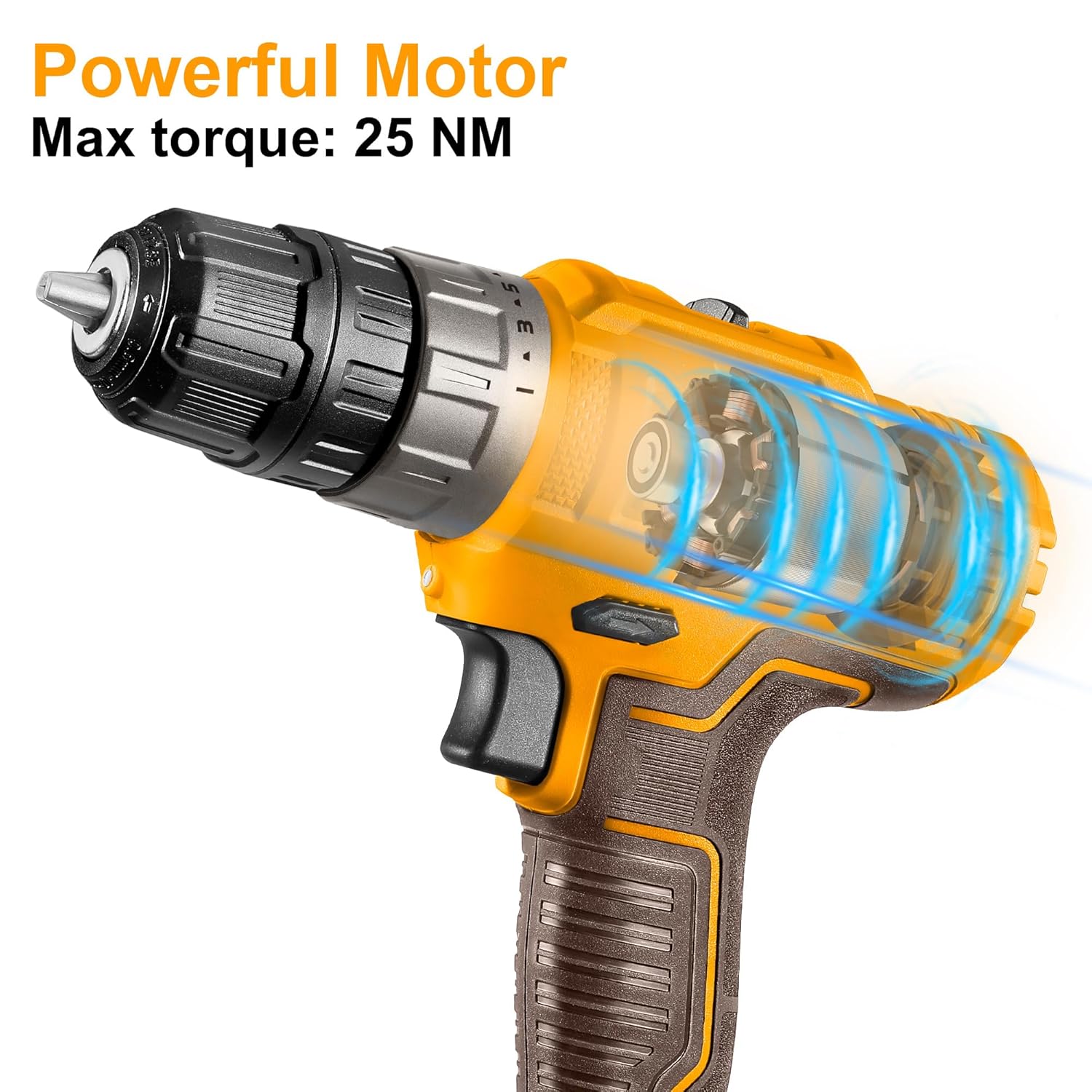A hammer drill machine is an essential tool for professionals and DIY enthusiasts alike. However, with prices ranging from budget-friendly models to high-end professional-grade machines, it’s crucial to understand what affects their cost. In this guide, we’ll break down the key factors that influence hammer drill prices and help you make an informed purchase.
1. Power & Performance
One of the biggest price determinants is the power output of the drill.
✔ Motor Power (Wattage or Voltage) – Corded drills are measured in watts (W), while cordless drills use voltage (V). Higher power typically means better performance but also increases the price.
✔ Impact Energy & BPM (Blows Per Minute) – Essential for heavy-duty drilling in concrete and masonry. Higher impact energy means more efficiency but also a higher cost.
🔹 Budget Option → 500W-750W motors, ideal for light tasks.
🔹 Premium Option → 1000W+ motors with higher BPM for industrial work.
2. Corded vs. Cordless
The choice between corded and cordless hammer drills greatly affects the price.
✅ Corded Hammer Drills
✔ More affordable than cordless models.
✔ Provides unlimited power, ideal for long tasks.
✔ Best for heavy-duty work like drilling concrete.
✅ Cordless Hammer Drills
✔ Higher price due to battery technology.
✔ More portable and convenient.
✔ Best for remote job sites or home use.
💡 Price Tip: Cordless drills with higher voltage (18V-36V) and longer battery life cost more, especially if they come with fast-charging or spare batteries.
3. Brand & Build Quality
A well-known brand ensures reliability, durability, and better performance, but it also comes at a cost.
🔹 Budget Brands: Ingco, Homdum, Black+Decker (Affordable, good for DIYers).
🔹 Mid-Range Brands: Bosch, Makita (Balance between price and quality).
🔹 Premium Brands: DeWalt, Hilti, Milwaukee (Best for professionals, but expensive).
High-quality materials such as metal gear housings and reinforced chucks make a drill last longer but also increase the price.
4. Type of Chuck & Drill Bits Compatibility
The chuck type plays a role in performance, durability, and cost.
✔ Keyless Chuck → Easy bit changes, suitable for general drilling (lower price).
✔ SDS Chuck → Designed for high-impact drilling in concrete (higher price).
✔ Metal Chuck → More durable and holds bits securely (expensive but long-lasting).
If you need a drill that supports specialized drill bits (carbide, masonry, wood, metal), expect to pay a bit more.
5. Additional Features & Accessories
The more features a hammer drill has, the higher its price.
✅ Variable Speed & Reverse Mode – Allows better control and bit removal.
✅ Torque Settings – Adjusts power for different materials.
✅ Anti-Vibration Handle – Reduces strain during prolonged use.
✅ LED Work Light – Helps in low-light conditions.
✅ Carrying Case & Extra Batteries – Included in premium models.
💡 Price Tip: If you’re a beginner, a basic model without extra features will save you money.
6. Warranty & After-Sales Support
Brands that offer longer warranties (2-3 years) tend to have slightly higher prices because they provide better quality assurance.
🔹 Budget Drills → 6 months to 1-year warranty.
🔹 Premium Drills → 2-3 years with extended service support.
Buying from a trusted seller like Homdum ensures genuine products with manufacturer warranties.
Final Thoughts: Choosing the Best Hammer Drill Within Your Budget
Budget-Friendly (₹2,500 - ₹6,000): Best for light household tasks (wood, plastic).
Mid-Range (₹6,000 - ₹12,500): Ideal for DIYers and moderate masonry work.
High-End (₹12,500 - ₹33,000+): Professional-grade, powerful, and long-lasting.
Now that you know what affects hammer drill prices, explore the best deals at Homdum and get the right tool for your needs!





Leave a comment
This site is protected by hCaptcha and the hCaptcha Privacy Policy and Terms of Service apply.